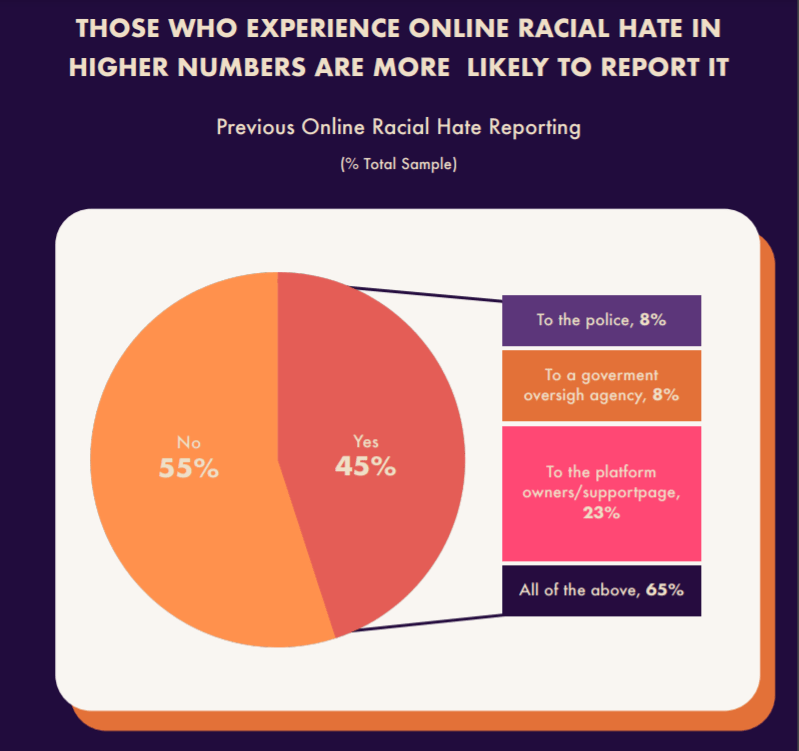News
Young Black Audiences Targeted More Than Any Other Group
If you’re Black and 18-34, it’s a good chance that you’ve experienced or will experience racial hate while online according to the latest Online Racial Hate report released earlier this week.
This comes at a time when online racial hate speech and sexism towards Black women in the WNBA continues to be an issue. From the backlash that many WNBA players received for being at the forefront of the social justice movement in professional sports, to former basketball star Val Whiting being called racial slurs on social media, Black female athletes have many times been victims of online racial hate speech.
The report conducted by B Code, a digital media company focused on helping brands and advertisers connect with Black audiences digitally, in partnership with hip hop news site SOHH.com, provides an insightful perspective on how harmful content on social media platforms is impacting Black audiences and content creators online.

On Thursday, a panel of experts will gather to discuss this report and the harmful effects on Black users and content creators, specifically on Instagram and Facebook. You can register here.
Damian Bender, General Manager of B Code, says that one of the striking revelations from their research is that Black audiences are not seeing adequate progress to address harmful content.
“What we’re seeing is that most Black audiences have not seen any progress in stemming the tide of hateful speech on social platforms” says Benders. “We hope that this study provides much needed insight into how online activity translates into real life impact and guidance on what social media platforms must do to mitigate exposure to harmful content.”
Topline insights from the report include the following:
1. More than half (54%) of all Black content creators reported having been victims of online racial hate.
2. Across all respondents, Facebook and Instagram were cited most as platforms where users experience online racial hate.
3. 18-34 year old consumers are disproportionately impacted by online racial hate as 46% of that segment reports that experience, especially on smaller social platforms
4. The overwhelming majority of respondents who do not report racial hate are disenfranchised, with 58% indicating the report will not make a difference and another 30% believing that no punishment will be imposed.
5. 66% of the Black audience says that online racial hate affects their mental health and well being.
But even with studies like this, how can the WNBA work with major online and social platforms to counter the rise in online racial hate that continues to target their Black players and peers? Danielle Hester, Brand Marketing Lead at B Code, says it’s important that more safeguards are implemented to create healthier experiences for Black content creators and their followers.
“Because of the discrimination they face online, Black content creators may not feel comfortable expressing their authentic selves when engaging with others online and feel isolated due to not feeling welcome within online communities,” adds Hester. “The onus is on these media platforms to make their digital environments more of a safe space for diverse audiences.”